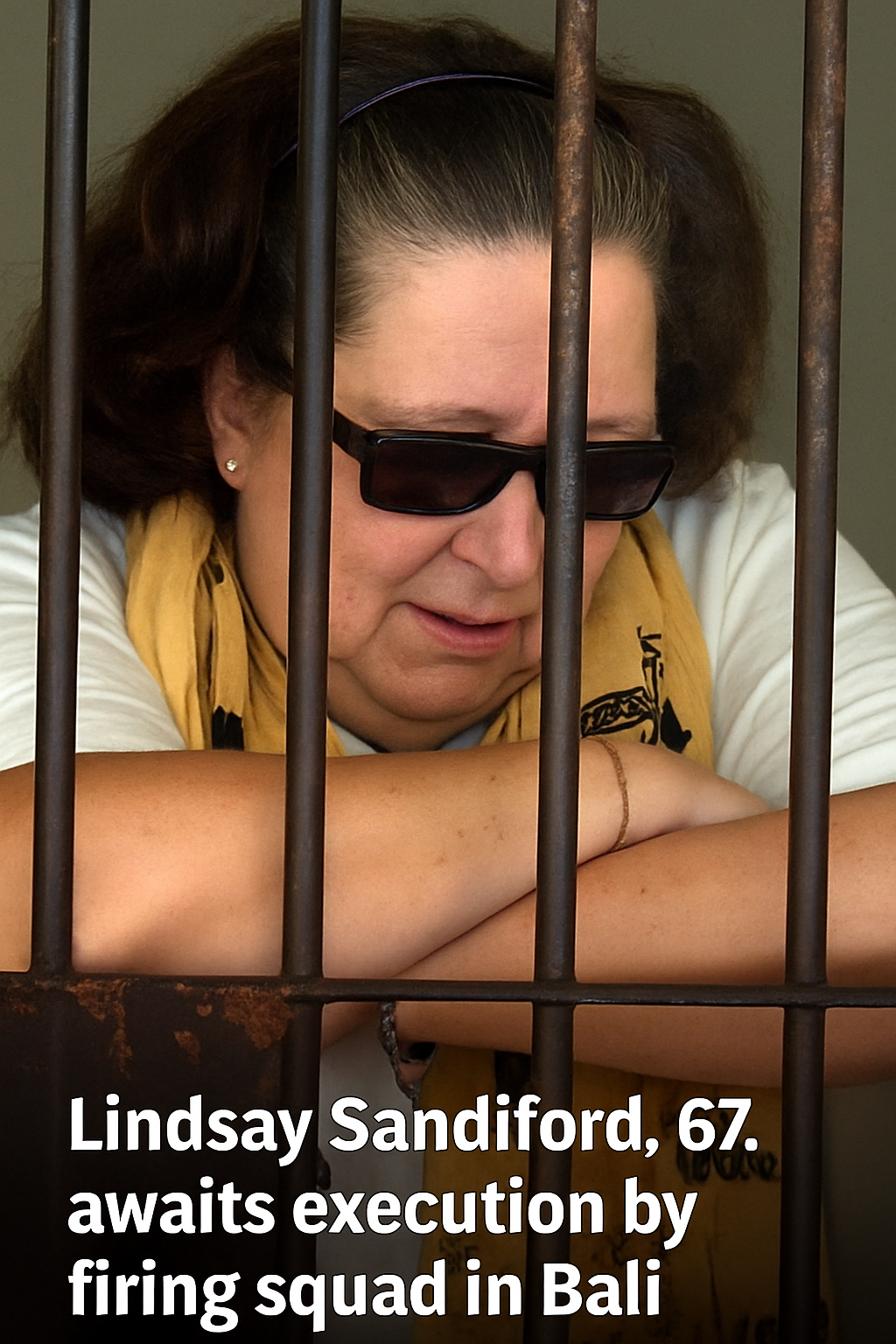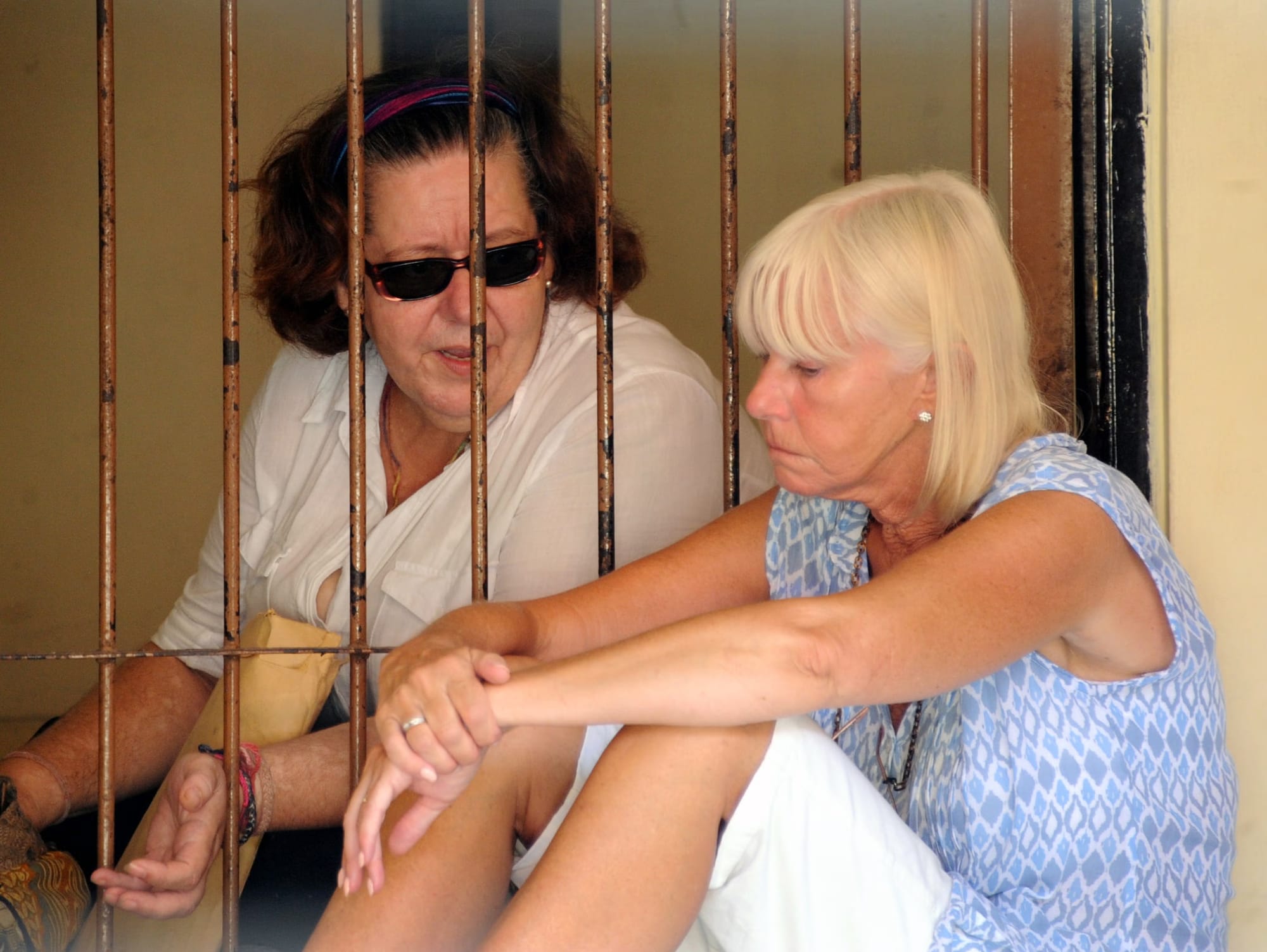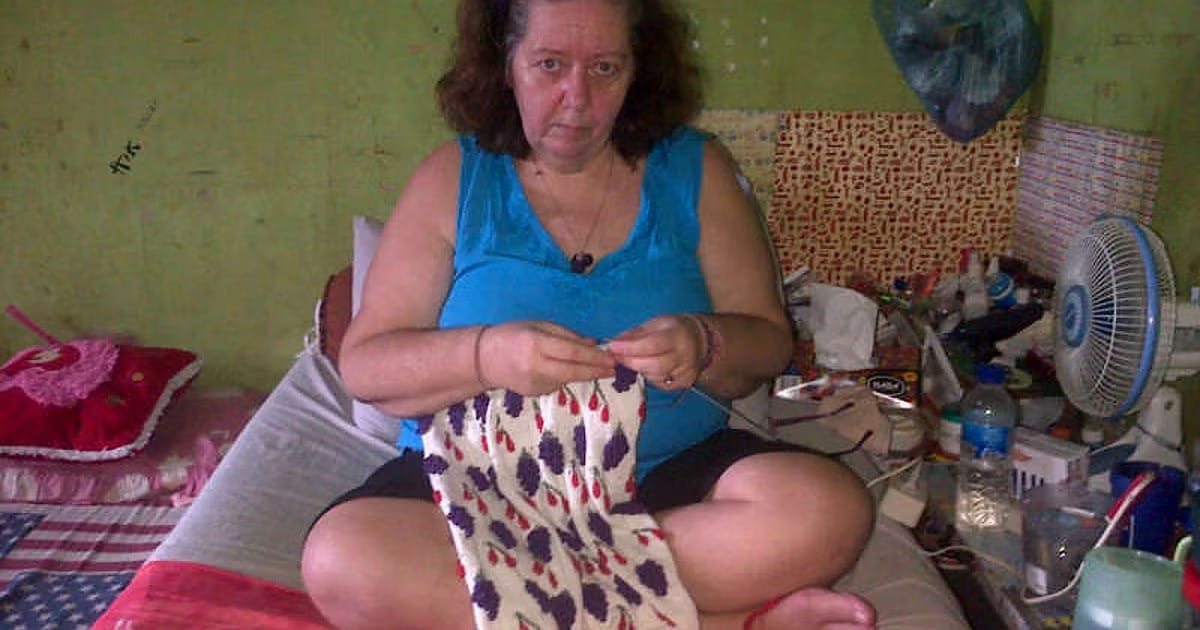Countdown to Silence: Lindsay Sandiford Awaits Execution in Bali for Drug Trafficking
Lindsay Sandiford, a British grandmother, faces death by firing squad in Bali for smuggling cocaine. Her case reveals the dark side of Indonesia’s drug laws, global human rights concerns, and the limits of diplomatic protection. Still on death row in 2025.

Kerobokan Prison, Bali, July 21, 2025
A Heartbeat Away from the End: The Prisoner in the Shadows
The air is thick with sweat and silence. In Kerobokan Prison, a 67-year-old woman gazes through rusted iron bars, counting days that never arrive. The silence gets interrupted only at dawn, when footsteps ring out down the corridor, and everyone holds their breath. This is the rhythm of death row in Indonesia.
For Lindsay Sandiford, every morning could be her last. Convicted over ten years ago for smuggling cocaine into Bali, Lindsay now lives under the shadow of a rifle barrel, sentenced to die by firing squad. Her case stands as a stark reminder of Indonesia’s harsh drug laws and the international community’s indifference.
Who Is Lindsay Sandiford? A Life Twisted by One Mistake
- Name: Lindsay Sandiford
- Nationality: British (Cheltenham, Gloucestershire)
- Age at arrest: 56
- Year of Arrest: 2012
- Crime: Smuggling 4.8kg of cocaine into Bali in her suitcase
- Sentence: Death by firing squad
- Current Status: On death row at Kerobokan Prison, awaiting execution
In May 2012, Lindsay Sandiford flew from Bangkok to Bali. At Ngurah Rai International Airport, customs officers flagged her luggage. Hidden inside her suitcase was nearly 5 kilograms of cocaine, worth £1.6 million. Lindsay confessed immediately.
She also cooperated. Her confession helped Indonesian authorities arrest four others involved in the drug ring. Yet, unlike some of them, Lindsay received the harshest possible sentence.
She claims she was coerced. In her statement and court documents, she reports facing severe pressure and threats to her family. Despite her cooperation and vulnerability, prosecutors sought the death penalty. And the judges agreed.
The court's reason? Sending a message. The judges stated that her actions had "damaged the image of Bali as a tourist destination" and contributed to the local drug crisis. Despite international protests, her sentence was upheld through multiple appeals and judicial reviews.

The Law That Kills: Indonesia’s Brutal War on Drugs
Indonesia is one of the strictest countries in the world when it comes to drug offenses. It's the 2009 Narcotics Law mandates the death penalty for trafficking more than 5 grams of Class A drugs like cocaine or heroin.
- Execution Method: Firing squad
- Last Executions: 2015, including 8 foreign nationals
- Delay Tactics: Appeals can take years, but once exhausted, execution is imminent.
The nation’s hardline approach intensified under President Joko Widodo, who declared a “drug emergency.” Despite international pressure, the Indonesian government has maintained its zero-tolerance policy.
Bali’s Dark Legacy: Past High-Profile Drug Cases
Lindsay Sandiford’s situation is not unique. Indonesia’s history with drug smugglers has drawn international attention and serious criticism:
The Bali Nine (2005)
Nine Australians were caught smuggling heroin. Two, Andrew Chan and Myuran Sukumaran, were executed in 2015 despite extensive diplomatic efforts by Australia.
Schapelle Corby (2004)
Another Australian, caught with 4.2kg of marijuana. Sentenced to 20 years, she served 9 and was released in 2014. Her case sparked a media frenzy, but she avoided the death penalty.
Compared to these, Lindsay’s case is even more tragic: older, British, and supposedly coerced.

Silence at Home: Public Outcry and Government Inaction
Human rights organizations like Reprieve, Amnesty International, and Human Rights Watch have condemned Indonesia’s handling of Sandiford’s case. Reprieve, which has worked with her legal team, insists that she was a vulnerable woman exploited by drug lords.
But even with diplomatic murmurs, the UK government has refused to fund her legal defense, citing a policy that prevents taxpayer money from being used for overseas criminal cases.
“The UK must do more than politely protest. This is state-sanctioned killing of a British citizen,” Harriet McCulloch, Reprieve Deputy Director, said.
Over 139,000 people have signed petitions urging clemency. Yet, Indonesia remains unmoved.
Her Only Support?
Charitable donations and human rights lawyers. Even her clemency plea to the Indonesian President was rejected in 2013. The clock has been ticking ever since.
Behind the Sentence: Legal Experts Raise Red Flags
Legal observers have harshly criticized the disproportionate sentence given to Sandiford.
“The death penalty for a first-time non-violent offender, especially one who cooperated with authorities, violates the principle of proportionality,” said Prof. Richard Clements, International Human Rights Law, University of Bristol.
Critics state her trial was filled with issues:
- No legal counsel was present during her initial interrogation.
- Coercion was not taken into account enough.
- Her age and mental well-being were overlooked.
- There was a lack of state-funded legal defense.

Where Things Stand Now: A Life on Hold
Prison: Kerobokan, nicknamed “Hotel K”
Last Appeal: Rejected in 2013
Execution Date: Still undisclosed
Rumors: Unconfirmed reports suggest she’s next on the list for executions.
Sandiford spends her days in a 2x3 meter cell. She spends most of her time alone, largely isolated, awaiting a fate that could come without warning. But every morning may bring the order for her execution. In Indonesia, those on death row are often given just 72 hours’ notice before execution.
The psychological toll is immense. In rare interviews, Sandiford has described her time on death row as a “slow-motion death.” She has taken up knitting and reading as coping mechanisms. Despite the years that have passed, she remains in limbo — no scheduled date, no guarantee of clemency.
She has no family visits. Her sons have distanced themselves. She is alone.

Final Verdict or Global Wake-Up Call?
As the world watches the fate of a 57-year-old British grandmother unfold in a Balinese courtroom, the case transcends borders, laws, and age. It’s no longer just a story about drug trafficking—it’s a haunting reflection of how zero-tolerance laws can collide with complex human circumstances. For Indonesia, the execution would reaffirm its hardline stance on drugs; for the UK, it ignites debates on diplomacy, justice, and human rights.
Whether this ends in a last-minute clemency or a tragic execution, one thing is clear: this case has exposed deep moral and legal fault lines between nations. And in doing so, it’s forcing the world to ask—when it comes to the death penalty, are we delivering justice, or simply drawing lines too bold to ever erase?
Is Silence Also a Sentence?
Should nations like the UK do more to defend their citizens abroad, even if they're guilty? Do you believe in capital punishment for drug offenses?
Would your answer change if it were your grandmother?
“I’ve come to terms with it. I just want it over with,” Lindsay Sandiford wrote in a letter to The Guardian.
Her words express exhaustion, not defiance. She has accepted her fate—but must we? As the firing squad waits and governments stay silent, one life hangs in limbo. If the world won’t speak for her now, will it weep for her later?
Comment below or share this story.
Global attention might be the only thing that saves Lindsay now.
Sources
- BBC News – British Grandmother Faces Execution
- Reuters – Indonesia’s Strict Drug Laws and Death Penalty
- The Jakarta Post – Legal Process and Clemency Pleas
- ABC Australia – Past Executions (Bali Nine, Corby)
- CNN World – Global Reactions to Indonesian Death Sentences
- Pexels
- Unsplash
- Wikimedia Commons
- Getty Images
- Shutterstock Editorial




